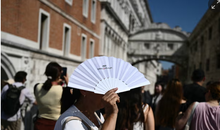
 Flash News
Flash News
Korçë/ 40-vjeçari hidhet nga ballkoni i katit të pestë, në gjendje kritike
Kroacia rikthen shërbimin e detyrueshëm ushtarak
Ndërtimet pa leje në Theth, Manja kërkon procedim disiplinor për prokuroren Elsa Gjeli
Detaje nga vrasja e Renis Dobrës, autorët erdhën me 2 makina Range Rover nga Rrësheni
Gjykata e Lartë e la në burg, Meta i drejtohet 'Kushtetueses'

By David L. Phillips
Albanians need transparency about the decision to establish a memorial in the center of Tirana for victims of the “coup” in Turkey. Who authorized the memorial? Who paid for it? What was the role of the Turkish embassy? There is also a broader question about the coup itself. Was the coup a genuine effort to overthrow the Turkish government or did Erdogan stage-manage the events to justify a crack-down on political opponents? The coup was so poorly executed, some call it a “false-coup”.
By studying previous attempts to overthrow a civilian government, we have identified “best practices” when conducting a coup.
The first priority is to capture or kill the head of government. Loyal military and security units are simultaneously immobilized.
The conspirators take control of conventional media, television, and radio, as well as social media such as Twitter, Facebook, and YouTube.
A coup leader presents himself to the public so people can attach a face to the events and thereby be reassured.
The events in Turkey did not follow this script.
Erdogan was vacationing in Marmaris on July 15. When mutinous soldiers arrived at his hotel to arrest him, he had checked out and was on his way to Dalaman airport.
How could the conspirators have been unaware of Erdogan’s travel plans? Why wasn’t Erdogan apprehended before his presidential plane took off? Why didn’t the coup plotters use F-16 fighter jets to intercept or shoot down the plane?
Only TRT and CNN Turk were taken off the air. The conspirators did not suspend social media. It is ironic that Erdogan addressed the nation using FaceTime, which he vowed to eliminate after cracking down on pro-democracy demonstrators.
Why did the coup plotters fail to take over major private networks that most Turks actually watch? Why did they allow social media to function uninterrupted?
Erdogan disappeared during the coup. When he surfaced in the early morning, he called on followers to take to the streets in defense of Turkey’s democracy. Imams echoed Erdogan’s appeal. The chant “Allahu akbar” – God is great – reverberated from the muezzins of mosques. Many thousands of supporters went to Ataturk Airport and Taksim Square in Istanbul. They also gathered outside the presidential palace in Ankara.
Why did land forces and gendarmerie fail to lock down major thoroughfares? They only stopped traffic in one direction from the Asian side to the European side of Istanbul across the Bosphorus Bridge and the Fatih Sultan Mehmet Bridge.
While imams called Erdogan’s supporters to the streets, the conspirators issued instructions for people to stay indoors, which allowed Erdogan supporters free reign.
Why didn’t the putschists present themselves to the public, explaining events and offering reassurance?
F-16s allegedly bombed the army headquarters and the Turkish Grand National Assembly (TGNA). However, structural damage was minimal.
Why does crater analysis suggest that explosives inside the building were used, rather than high impact ordinance of fighter jets?
In his first public remarks during the early morning of July 16, Erdogan issued a chilling threat: “This latest action is an act of treason. This attempt, this move, is a great gift from God for us. Why? Because the move will allow us to clean up the armed forces, which needs to be completely cleaned.” He vowed to purge all state institutions of “the virus” spread by supporters of Fethullah Gulen.
It is unlikely that the coup was undertaken by the government against itself. More likely, the coup was infiltrated by Turkey’s National Intelligence Agency or Russian services. Erdogan allowed the coup to progress just far enough so it was credible and he could justify a crackdown in its aftermath.
The Turkish government had prepared lists of oppositionists and moved immediately to arrest them. About 50,000 members of the security services and civil servants were detained and another 100,000 dismissed from their jobs. Members of parliament, judges, and educators were also dismissed or arrested. Turkey has jailed more journalists than any other country. Do the victims of Erdogan’s gulag also deserve a memorial or a process for truth-telling?
An independent, Albanian-led investigation should be conducted into Turkey’s influence in Albania. Beyond the decision-making to establish the memorial, the investigation should consider possible corruption related to the Vlora airport and the launch of Albanian airlines, which were financed by Turks. The parliament would normally serve as the investigative body. However, Rama’s party controls the parliament, rendering it an incompetent and partial investigator. Some other mechanism is required.
In addition, an international investigation should consider whether the coup was credible. This investigation could be conducted by the European Parliament. The circumstances have a direct bearing on Turkey’s EU prospects.
Albania’s candidacy for EU membership will be reviewed in October. Why is Rama so closely aligned with Turkey, whose application for EU membership has been suspended over Turkey’s draconian human rights record? Does Albania seek greater Euro-Atlantic integration or ties to Turkey? The two options are mutually exclusive.
Rama acts like Erdogan’s poodle. His fawning over Erdogan is an embarrassment to the Albanian nation.
Albanians are a proud people who resisted Ottoman occupation. Today, the country’s sovereignty and honor must be protected from Turkey’s insidious influence.
*David L. Phillips is Director of the Program on Peace-building and Rights at Columbia University’s Institute for the Study of Human Rights. He served as a Senior Advisor to the U.S. Department of State under Presidents Clinton, Bush, and Obama. He is the author of Liberating Kosovo: Coercive Diplomacy and U.S. Intervention (The Kennedy School at Harvard University).
**The Op-Ed piece was written for Politiko.al
Link to the article in Albanian
Të fundit


Malltezi: SPAK e pranon, jemi në një proces që filloi me kallëzimin e rremë të Ballës
10 Korrik 2025, 22:34

Si të çliroheni nga bllokimet emocionale me anë të ushtrimeve
10 Korrik 2025, 21:57

Lala: Veliaj donte të rikthehej si kryebashkiak
10 Korrik 2025, 21:40
"Hajt t'i biem' se është i djathtë", Boçi: Në Theth synohen investitorët strategjikë
10 Korrik 2025, 21:33
VIDEO/ Sherr në parlamentin e Bolivisë, deputetët përplasen fizikisht
10 Korrik 2025, 21:20
Salianji: Çështja ime u nxor jashtë radhe, po goditen ata që shqetësojnë Ramën
10 Korrik 2025, 21:09
Salianji akuzon sistemin gjyqësor me emra: Më dënuan me dëshmi të rreme
10 Korrik 2025, 21:07
Shqipëria përjetoi një nga valët më të gjata të nxehtësisë së dekadës së fundit
10 Korrik 2025, 21:01

Qeveria miraton procedura të reja për deklarimin e vendbanimit në e-Albania
10 Korrik 2025, 20:39
“Mbretëresha e lumenjve të Evropës”, 7 bashki derdhin ujërat e zeza në lumin Vjosë
10 Korrik 2025, 20:21
Koka: Veriorët nuk kanë për t’ia harruar Edi Ramës operacionin racist në Theth
10 Korrik 2025, 20:18
3 shenjat e horoskopit që do të ndikohen më shumë nga ‘Hëna e Plotë’ e 10 Korrikut
10 Korrik 2025, 20:04
Emërohet drejtuesi i ri i Qendrёs Kombёtare tё Kinematografisё
10 Korrik 2025, 19:51
Korçë/ 40-vjeçari hidhet nga ballkoni i katit të pestë, në gjendje kritike
10 Korrik 2025, 19:40
‘Gruaja e lodhur’/ Sindroma që prek mijëra gra çdo ditë
10 Korrik 2025, 19:34
Çanta origjinale Hermès e Jane Birkin shitet për 10 milionë dollarë
10 Korrik 2025, 19:26

Nënshkruhet marrëveshja Britani-Ukrainë për 5 mijë raketa Thales
10 Korrik 2025, 19:00
Zjarr në Zvërnec, flakët rrezikojnë dy hotele
10 Korrik 2025, 18:57
Kroacia rikthen shërbimin e detyrueshëm ushtarak
10 Korrik 2025, 18:39
Spahia: E vërteta e madhe e akuzës së fortë të banorëve të Thethit
10 Korrik 2025, 18:35
Ndërtimet pa leje në Theth, Manja kërkon procedim disiplinor për prokuroren Elsa Gjeli
10 Korrik 2025, 18:15
Detaje nga vrasja e Renis Dobrës, autorët erdhën me 2 makina Range Rover nga Rrësheni
10 Korrik 2025, 18:10
Gjykata e Lartë e la në burg, Meta i drejtohet 'Kushtetueses'
10 Korrik 2025, 17:57
Dënim i ri me rregullore të 're'
10 Korrik 2025, 17:54
Përkthyesi i BE-së pushohet nga puna për shkak të frikës për sigurinë e Zelenskyy
10 Korrik 2025, 17:45
'Ti je polic, por jo Zot me ma marrë shpirtin', protestë për Agon Zejnullahun
10 Korrik 2025, 17:41

Ekspozimi i drejtpërdrejtë ndaj ajrit të kondicionuar mund të shkaktojë infeksion
10 Korrik 2025, 17:10
Video/ Rama përsërit skenarin, ulet sërish në gjunjë para Melonit
10 Korrik 2025, 16:56
I vuri zjarrin parcelës me ullinj, arrestohet 50-vjeçari në Shijak
10 Korrik 2025, 16:46

Rubio: SHBA-ja dhe Rusia kanë shkëmbyer ide të reja për bisedimet për paqe në Ukrainë
10 Korrik 2025, 16:36
Vdekja e 27-vjeçarit, dorëhiqet komandanti i Policisë së Lipjanit
10 Korrik 2025, 16:21
Video/ Digjet një banesë në Tiranë pranë Pazarit të Ri
10 Korrik 2025, 16:09

Trafik droge dhe grup kriminal, GJKKO lë në burg tre të pandehurit (EMRAT)
10 Korrik 2025, 15:51
Xhensila ndez rrjetin me urimin e saj për ditëlindjen e Ledrit
10 Korrik 2025, 15:42
Janë plot me pesticide! Lista me 12 produktet që duhet të kemi kujdes
10 Korrik 2025, 15:31

Aksident në Shëngjin, përfundon te Trauma 49-vjeçari
10 Korrik 2025, 15:11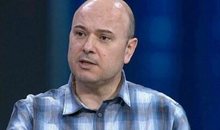
Malltezi: Brenda një dite më sekuestruan llogaritë, pronat dhe aksionet
10 Korrik 2025, 15:01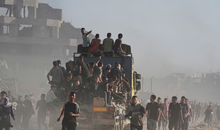
BE: Izraeli është pajtuar për më shumë ndihma në Gaza
10 Korrik 2025, 14:55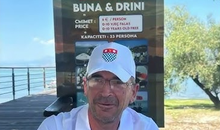
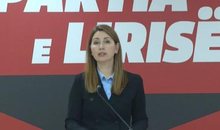
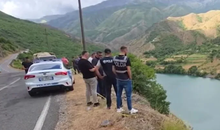
Vrasja e Renis Dobrës, nxirret nga uji mjeti i 23-vjeçarit
10 Korrik 2025, 14:29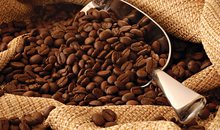
Tarifat e Trump ndaj Brazilit rrisin çmimin e kafes
10 Korrik 2025, 14:16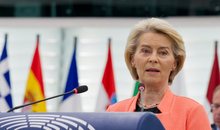
Ursula von der Leyen i mbijeton votëbesimit
10 Korrik 2025, 14:04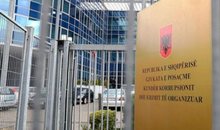
Gjyqi për "Plumbin e Artë”/ Debate të forta në GJKKO, shtyhet sërish seanca
10 Korrik 2025, 13:55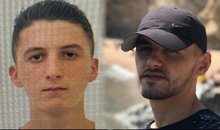
Vrau efektivin e Shqiponjave, Prokuroria e Fierit kërkon burg përjetë për Azgan Mërnicën
10 Korrik 2025, 13:46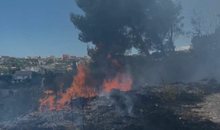
Zjarr në Lezhë, flakët pranë nënstacionit elektrik
10 Korrik 2025, 13:32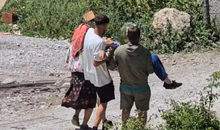
Banorët përplasen me policinë në Theth, një gruaje i bie të fikët
10 Korrik 2025, 13:24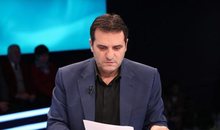
“Ramë i xanun”
10 Korrik 2025, 13:15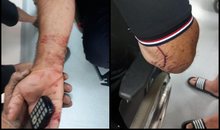

Tre shenjat e horoskopit që kanë gjasa të divorcohen në muajin korrik
10 Korrik 2025, 12:45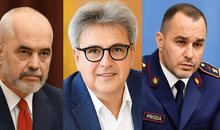
Kokë turku për një Republikë pa leje
10 Korrik 2025, 12:35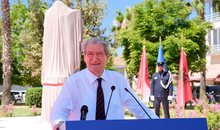
“Ka shkretuar kombin e vet”/ Berisha: Rama burgos kundërshtarët!
10 Korrik 2025, 12:26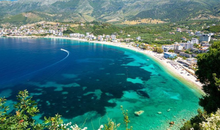
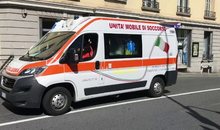
Plagoset me thikë shqiptari në Itali
10 Korrik 2025, 12:08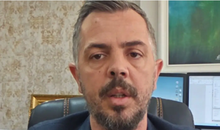
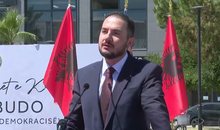
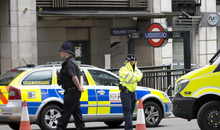
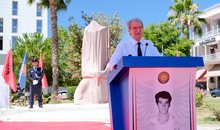
Inaugurimi i shtatores së Josif Budos, Berisha: Frymëzim dhe dritë për mbarë shqiptarët
10 Korrik 2025, 11:33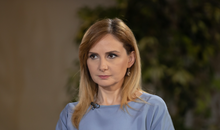
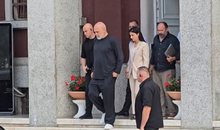
Vijon "turi i pastrimeve"/ Drejtorët e Bashkisë së Durrësit dorëzojnë sot dorëheqjet
10 Korrik 2025, 11:11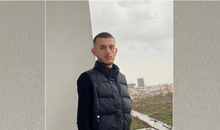
23-vjeçari në Mat u mbyt me litar, shoqërohen 4 të dyshuar
10 Korrik 2025, 10:58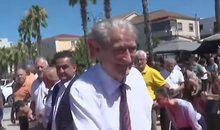
35-vjetori i rënies së dëshmorit Josif Budo, Berisha i pranishëm në ceremoni
10 Korrik 2025, 10:49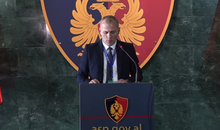
Pas shkarkimeve, komandohet drejtori i ri i Policisë së Shkodrës
10 Korrik 2025, 10:30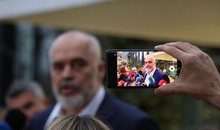
BIRN: Aksioni i Ramës për hapësirat publike, një shfaqje e përsëritur
10 Korrik 2025, 10:29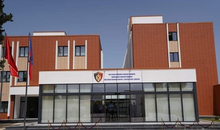
Aksioni në Theth, shkarkohen drejtuesit e Policisë së Shkodrës
10 Korrik 2025, 10:16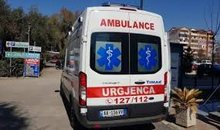
Aksident me vdekje në autostradën Tiranë-Durrës
10 Korrik 2025, 10:01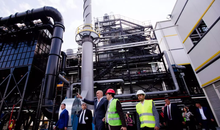
Inceneratori nuk ekziston, por qeveria vijon te shtojë fondet
10 Korrik 2025, 09:51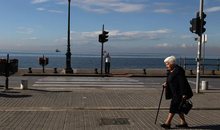
Shqipëria po plaket me ritme të shpejta! 30% e popullsisë mbi 60 vjeç
10 Korrik 2025, 09:46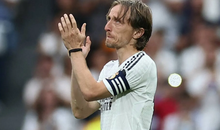
Fundi i një epoke, Modric i thotë 'lamtumirë' Real Madridit
10 Korrik 2025, 09:36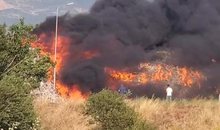
Mali i Dukatit prej 6 ditësh në flakë, banorët kërkojnë ndërhyrje nga ajri
10 Korrik 2025, 09:27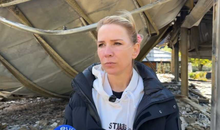
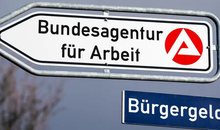
“Varfëria në rritje”/ DW: Shumë njerëzve në Gjermani nuk u del rroga
10 Korrik 2025, 09:08
Horoskopi, çfarë kanë rezervuar yjet për ju sot
10 Korrik 2025, 08:51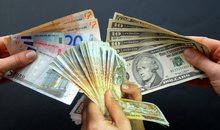
Këmbimi valutor 10 Korrik, me sa shiten e blihen sot monedhat e huaja
10 Korrik 2025, 08:51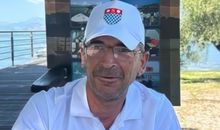
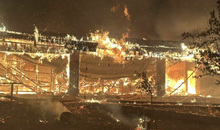
Foto/ Shkrumbohet gjatë natës restoranti në Theth, zjarri vihet nën kontroll nga banorët
10 Korrik 2025, 08:21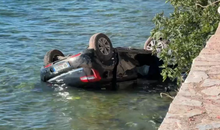

Rikthehet e nxehta përvëluese, termometri ngjitet deri në 40°C
10 Korrik 2025, 07:58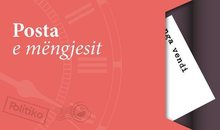
Posta e mëngjesit/ Me 2 rreshta: Çfarë pati rëndësi dje në Shqipëri
10 Korrik 2025, 07:46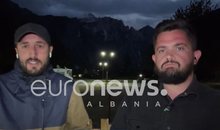
Operatori turistik në Theth: Po na shembin shtëpitë pa paralajmërim
9 Korrik 2025, 22:54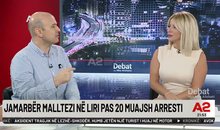
Malltezi akuza Gabriel Escobar: U kërkoi prokurorëve të veprojnë ndaj Sali Berishës
9 Korrik 2025, 22:33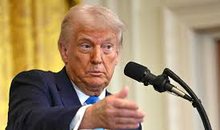
Trump dhe komandanti izraelit paralajmërojnë: Armëpushimi në Gaza mund të jetë pranë
9 Korrik 2025, 22:13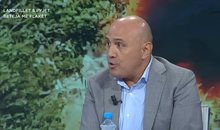
Zjarri në Landfillin e Elbasanit, pedagogu: Është një kancer dhe krim mjedisor
9 Korrik 2025, 21:54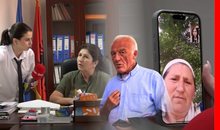
Ndodh në Kukës, gruas me tetë fëmijë i marrin lekët e raportit të lindjes
9 Korrik 2025, 21:38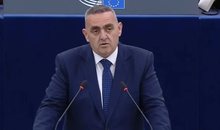
Beleri në PE: Raporti për Shqipërinë i zbukuruar, realiteti flet për dështime
9 Korrik 2025, 21:28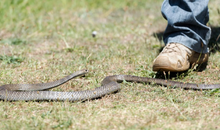
Verë me rrezik, rritet numri i pickimeve nga gjarpërinjtë
9 Korrik 2025, 21:22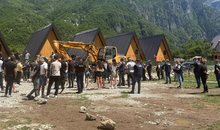
Berisha apelon sërish: Stop terrorit shtetëror mbi banorët e Thethit!
9 Korrik 2025, 21:15
Virusi i 'sëmundjes së puthjes' lidhet me disa forma kanceri
9 Korrik 2025, 21:04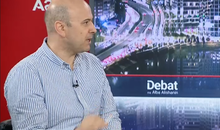
Malltezi rrëfen pas lirimit: Drejtësia është kthyer në armë politike
9 Korrik 2025, 20:51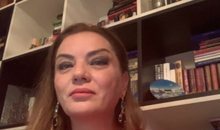
Vokshi: Ka ngecur integrimi i Shqipërisë në BE, shkak mungesa e zgjedhjeve të lira
9 Korrik 2025, 20:37